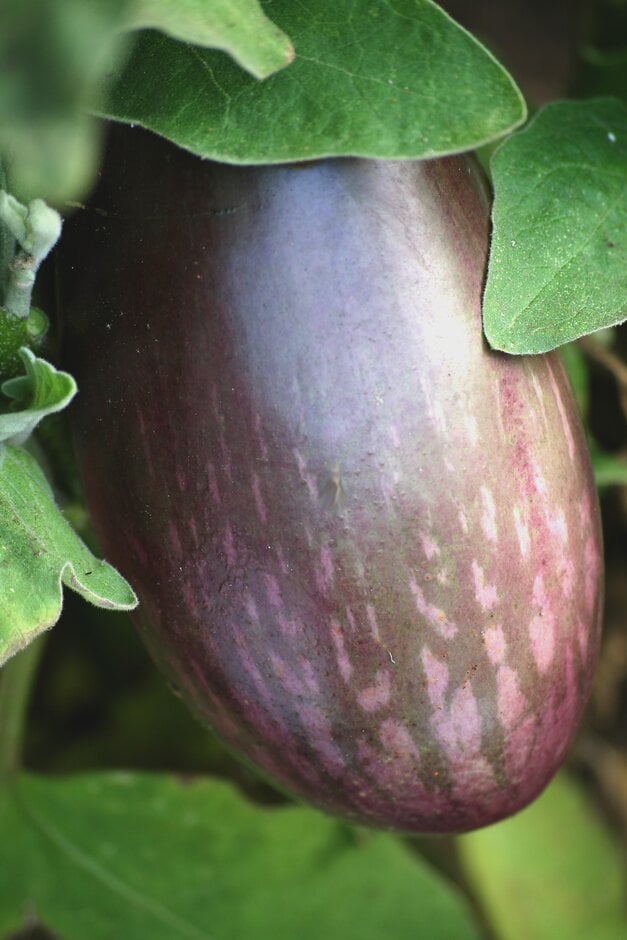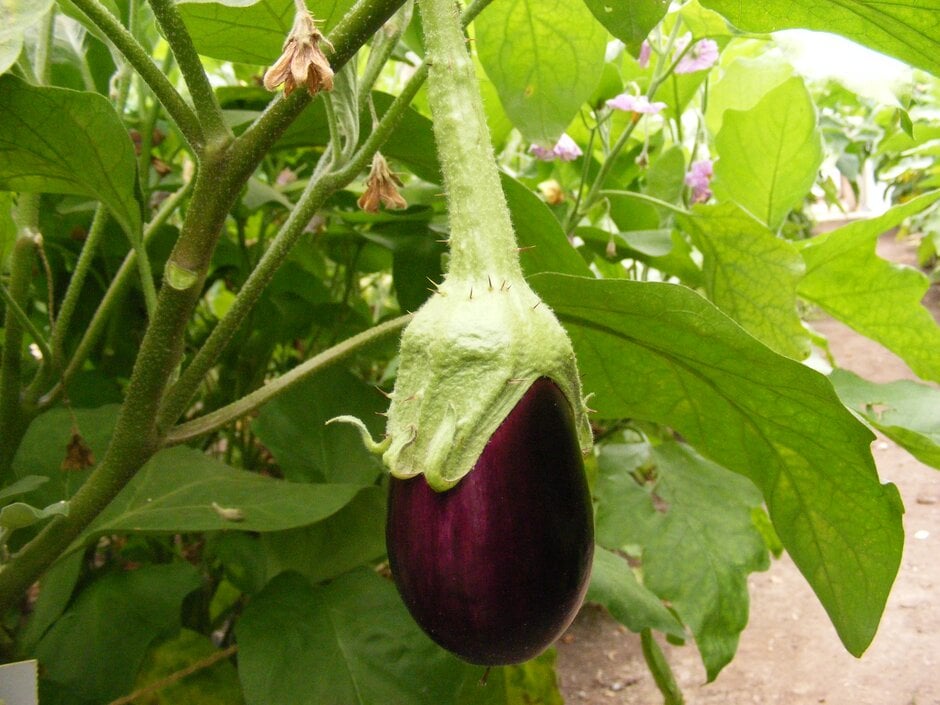Solanum melongena 'Bonica'
aubergine 'Bonica'
A variety of aubergine, a tropical perennial grown as an annual, with grey-green, downy foliage. It reaches about 1.2m, has small, pale purple flowers, and produces good quality, large, glossy, deep purple fruit from late summer into autumn
Size
Ultimate height
1–1.5 metresTime to ultimate height
1 yearUltimate spread
0.5–1 metresGrowing conditions
Moisture
Moist but well–drained, Well–drainedpH
Acid, Alkaline, NeutralColour & scent
| Stem | Flower | Foliage | Fruit | |
| Spring | Green Grey Silver | |||
|---|---|---|---|---|
| Summer | Purple | Green Grey Silver | Purple | |
| Autumn | Purple | Green Grey Silver | Purple | |
| Winter |
Position
- Full sun
Aspect
South–facing or West–facing
Exposure
Sheltered Hardiness
H1CBotanical details
- Family
- Solanaceae
- Native to GB / Ireland
- No
- Foliage
- Deciduous
- Habit
- Bushy
- Genus
Solanum can be annuals, perennials, evergreen or deciduous shrubs or twining climbers, with simple or pinnnately lobed leaves and star- or bowl-shaped, 5-lobed flowers with prominent stamens, followed by fleshy fruits
- Name status
Accepted
How to grow
Cultivation
Can be grown outdoors in a sunny, sheltered position in mild areas, but is better grown in a greenhouse or tall growing-frame. Start from seed or buy as small plants and grow on in a heated greenhouse or on a warm windowsill. Move to an unheated greenhouse or outside once all risk of frost has passed. Water regularly and feed every 10-14 days with a balanced liquid fertiliser, switching to a high potassium liquid feed once the first fruits have set. See Aubergines (Grow your own)
Propagation
Propagate by seed. See sowing vegetable seeds or sowing seeds indoors for further advice
Suggested planting locations and garden types
- City and courtyard gardens
- Patio and container plants
- Sub-tropical
Pruning
Pinch out the growing tip when the plant has reached about 30cm high to encourage branching
Pests
May be susceptible to glasshouse whitefly, aphids and glasshouse red spider mite
Diseases
May be susceptible to honey fungus (rarely), tomato leaf mould and tomato viruses
Love gardening
Sign up to receive regular gardening tips, inspiration, offers and more
View our Privacy Policy
Get involved
The Royal Horticultural Society is the UK’s leading gardening charity. We aim to enrich everyone’s life through plants, and make the UK a greener and more beautiful place.

